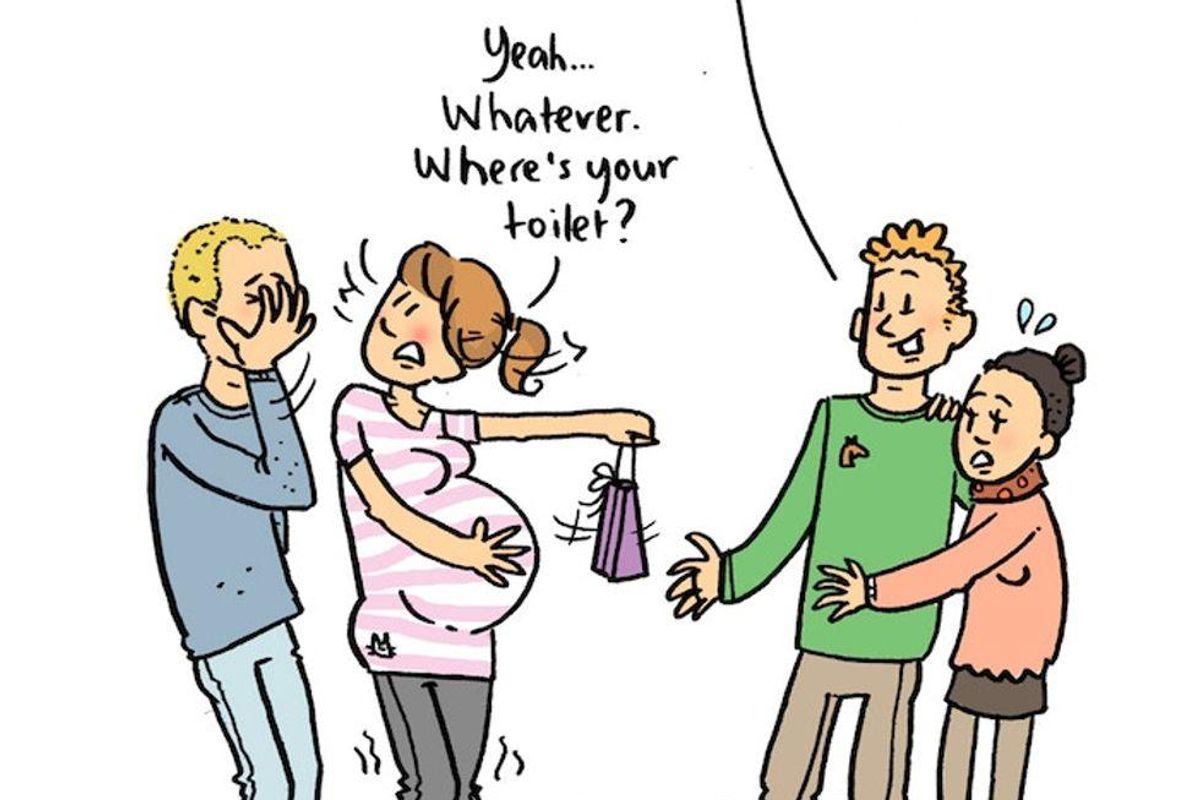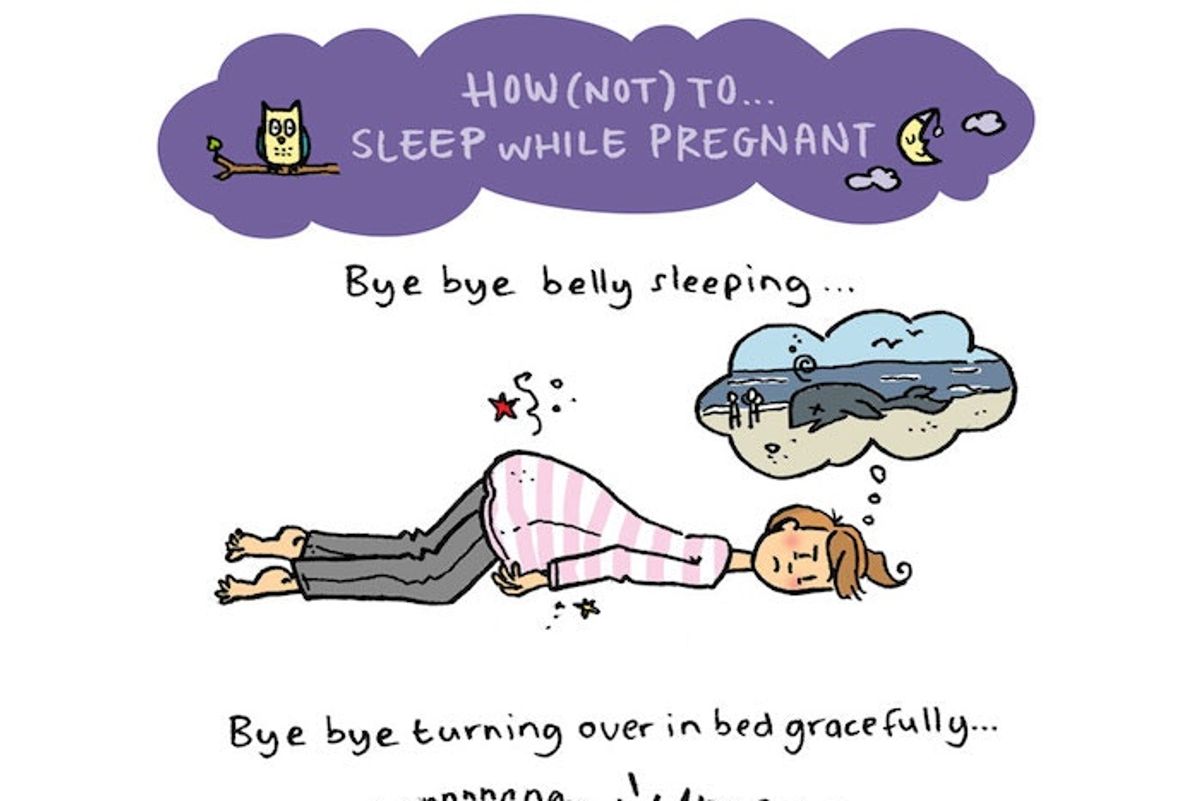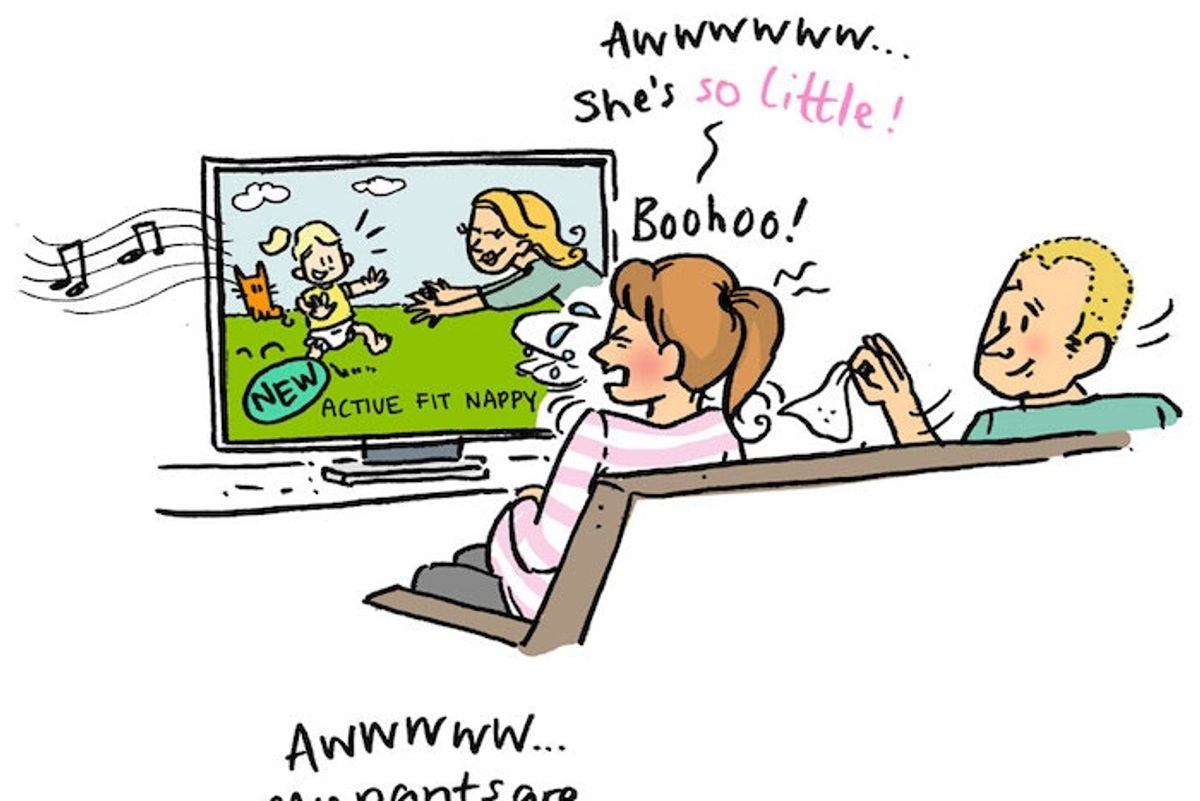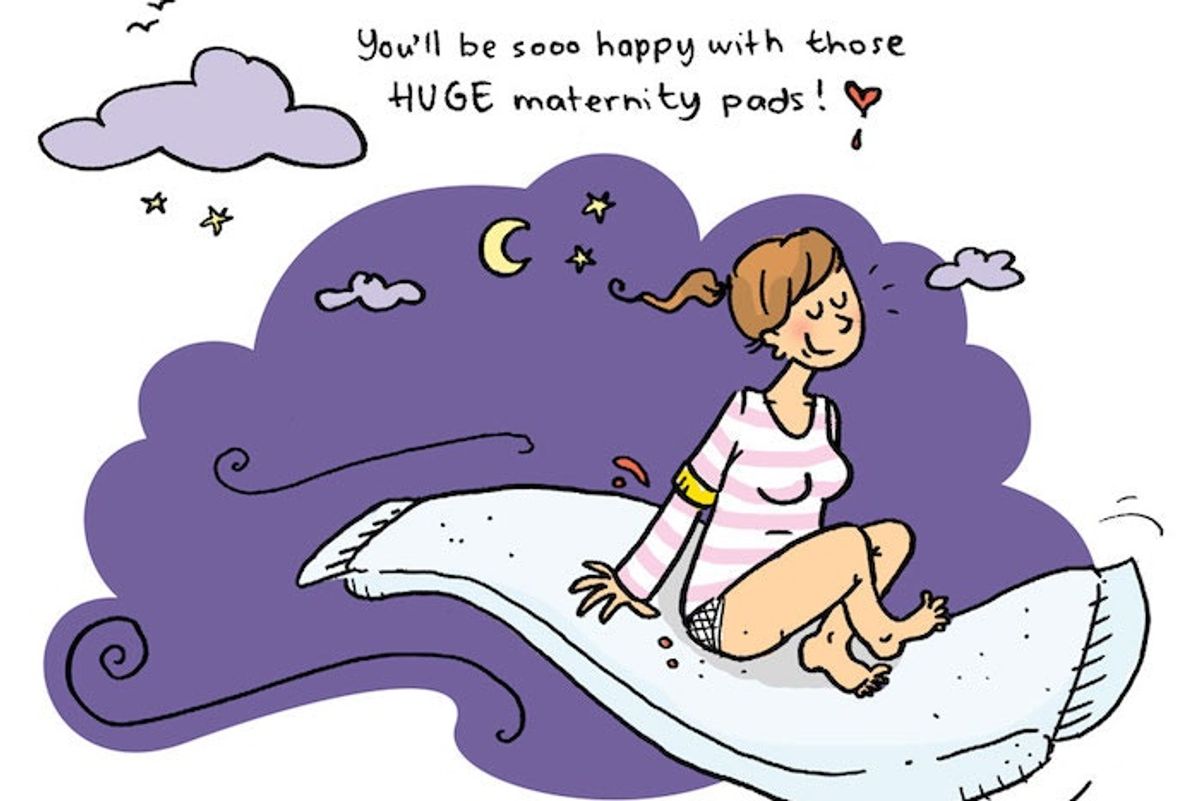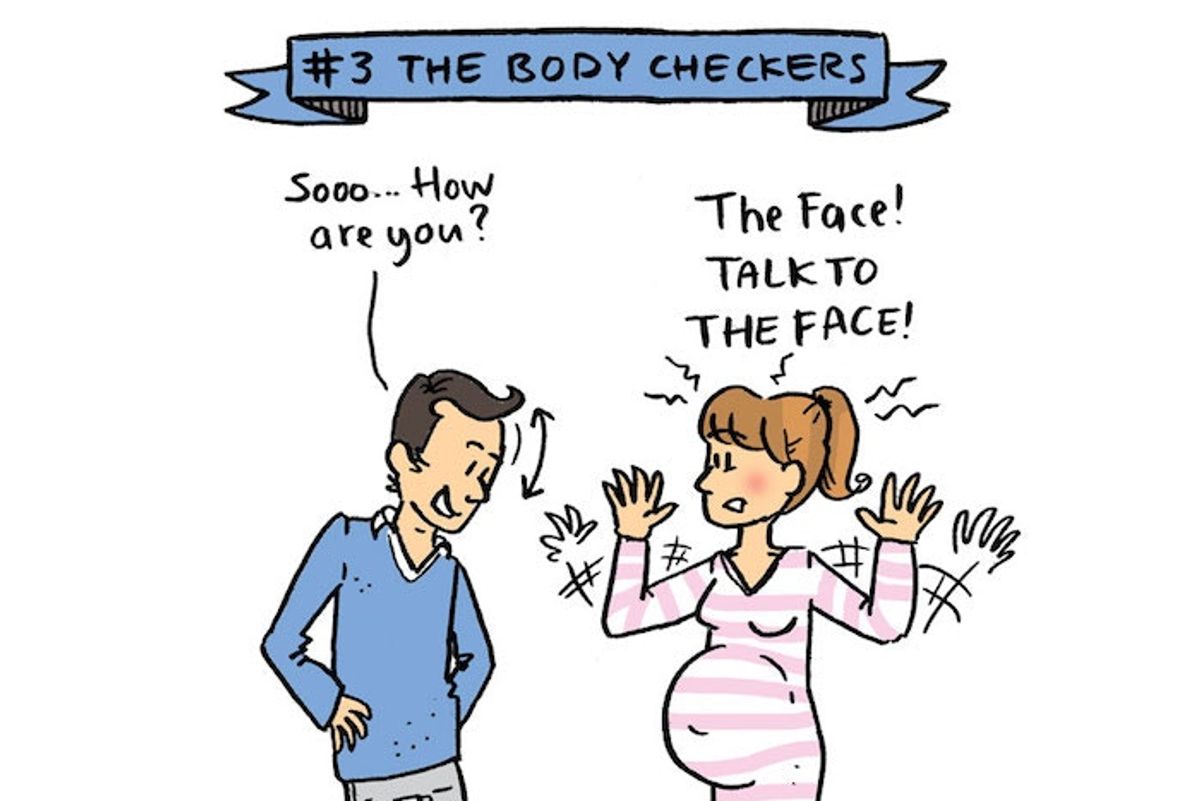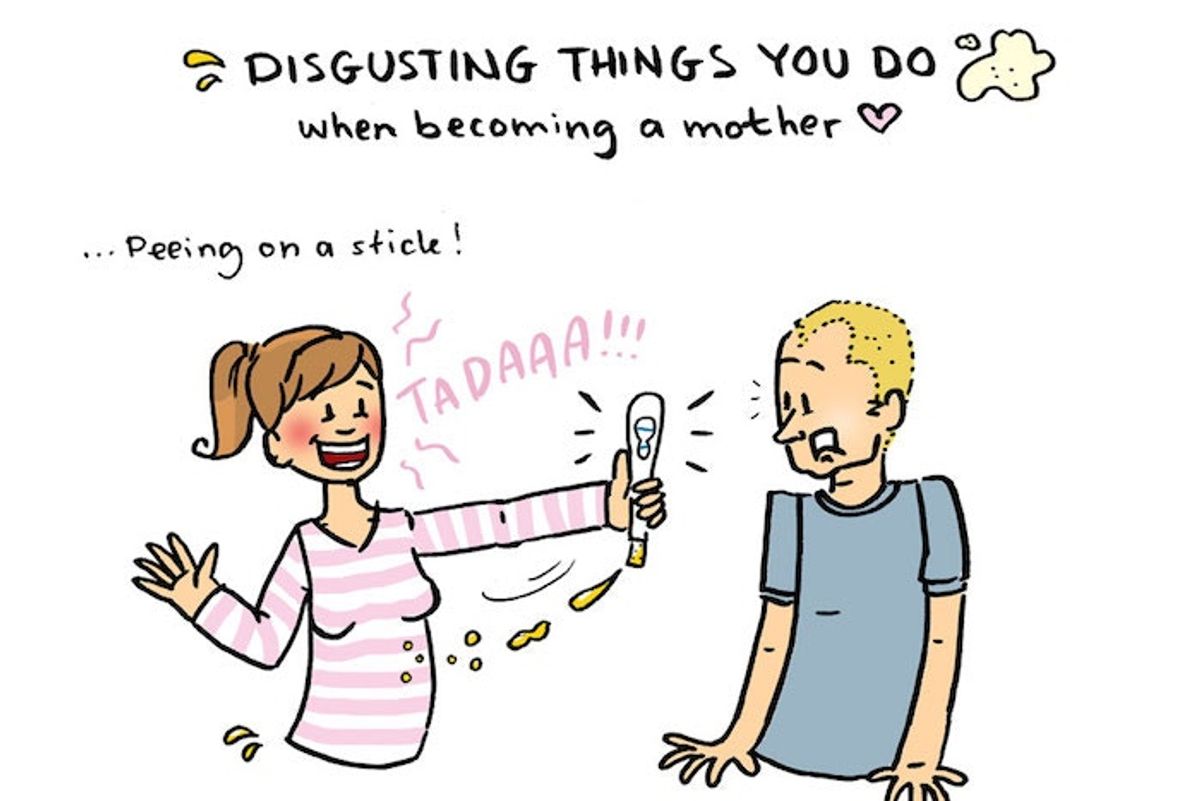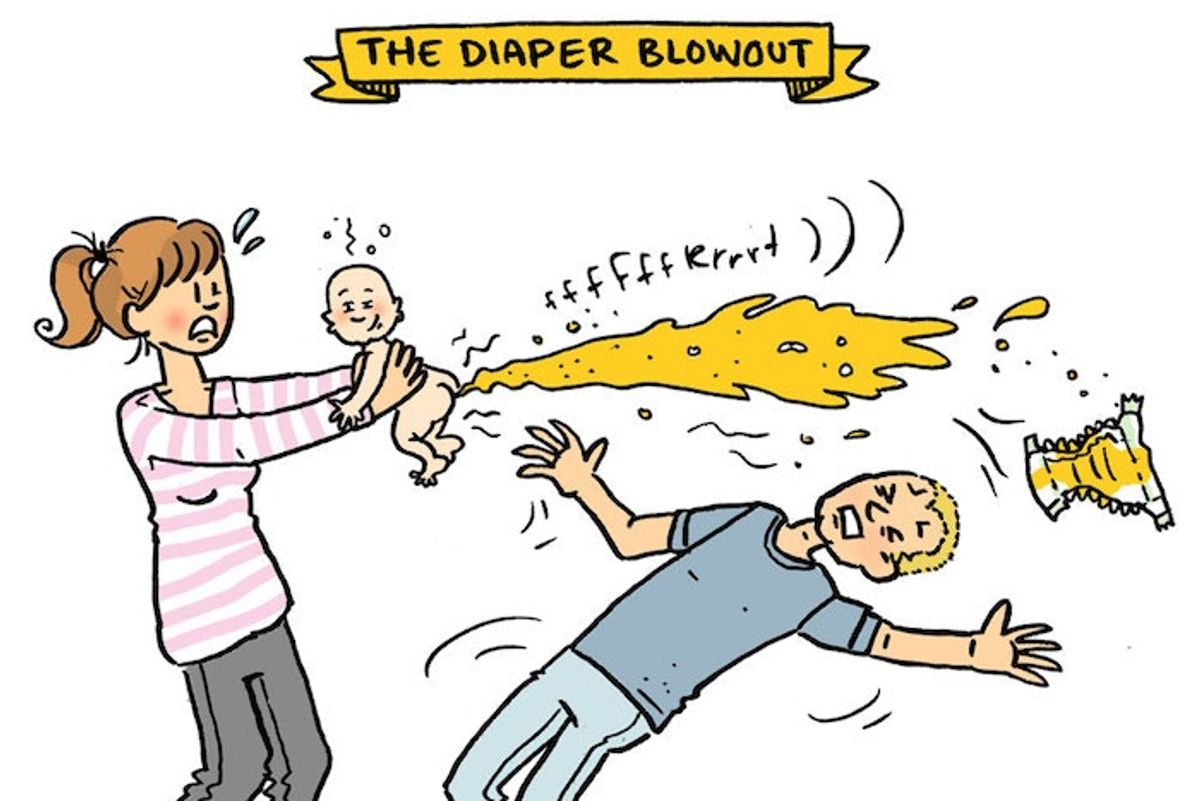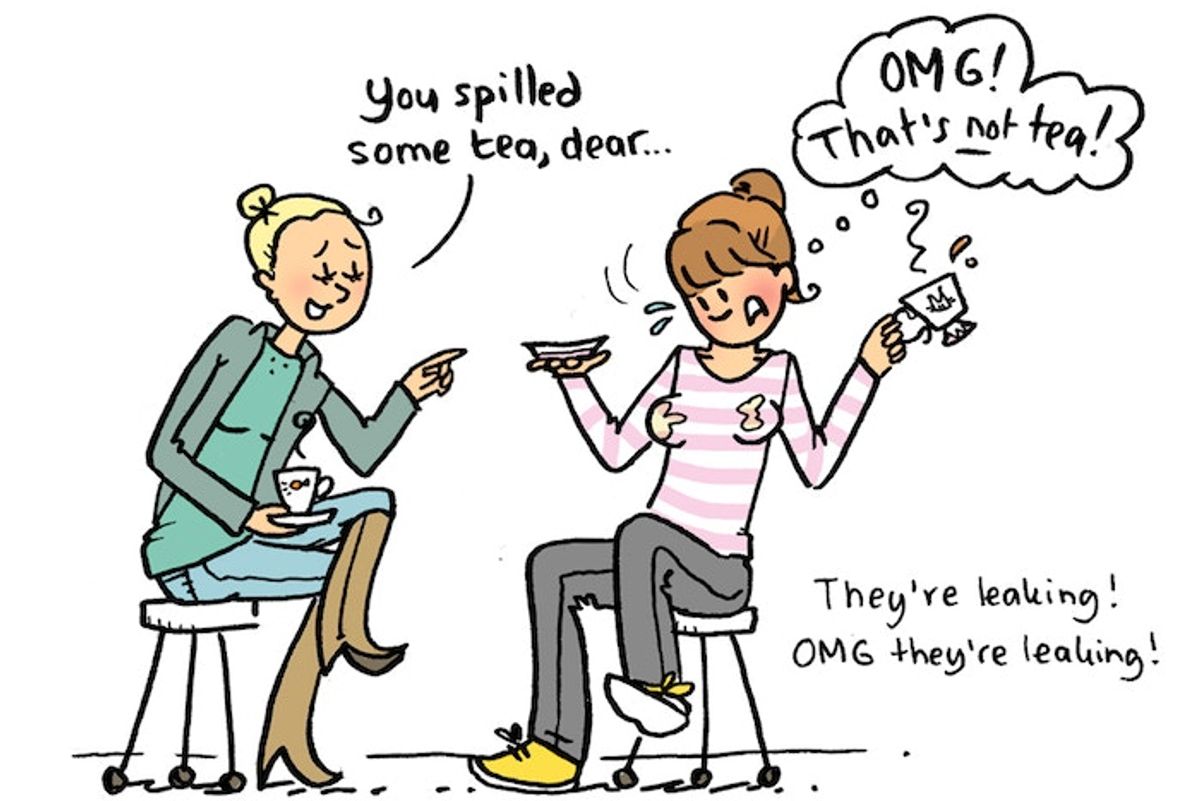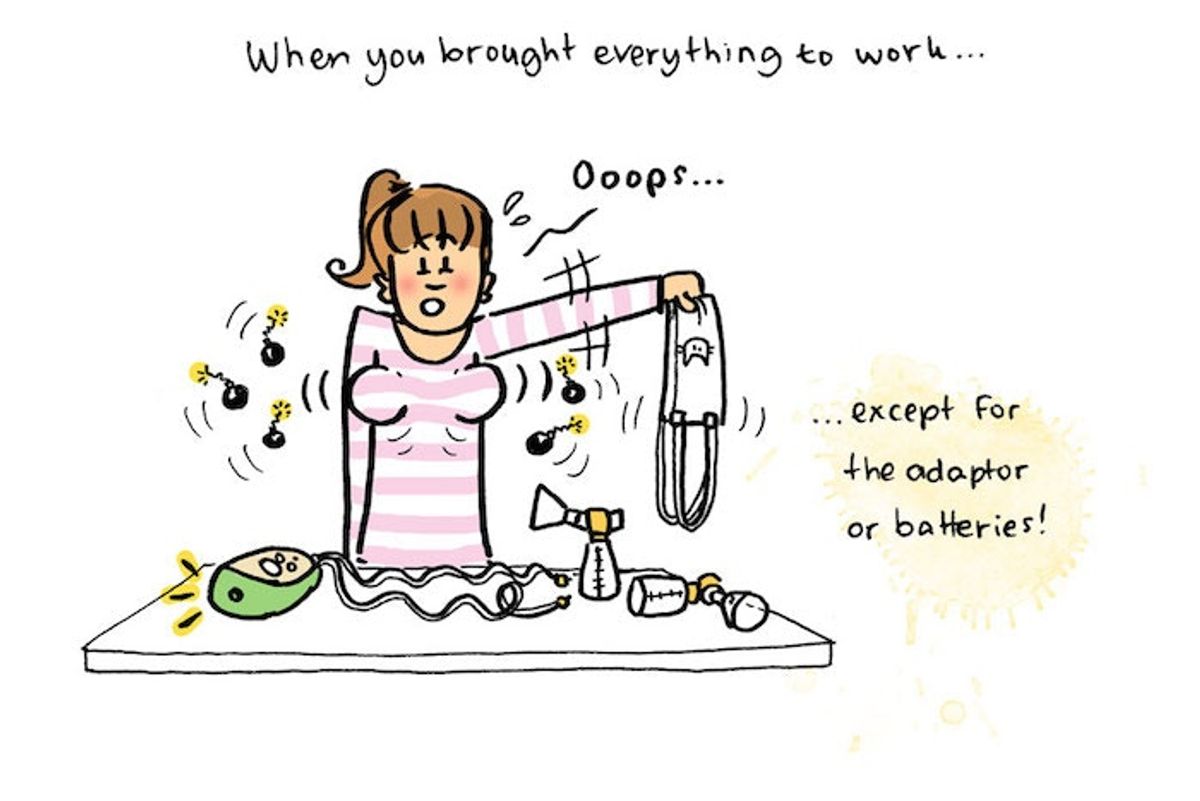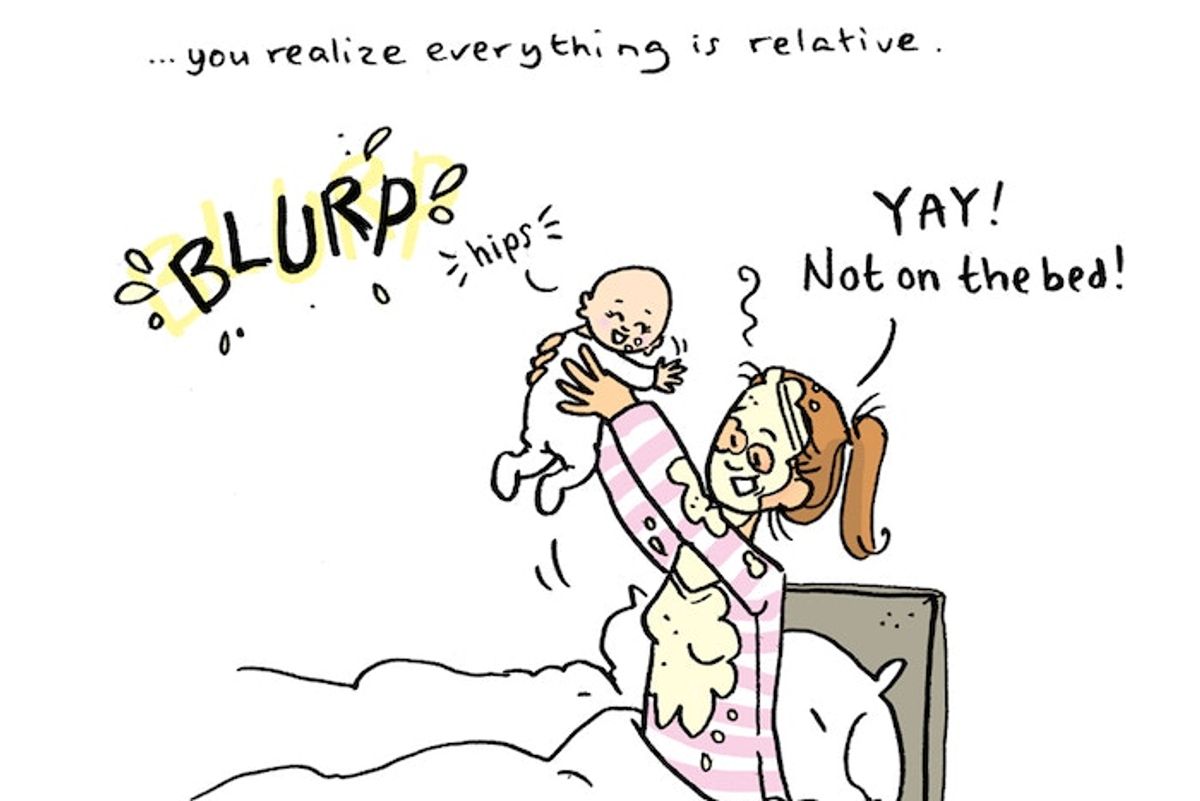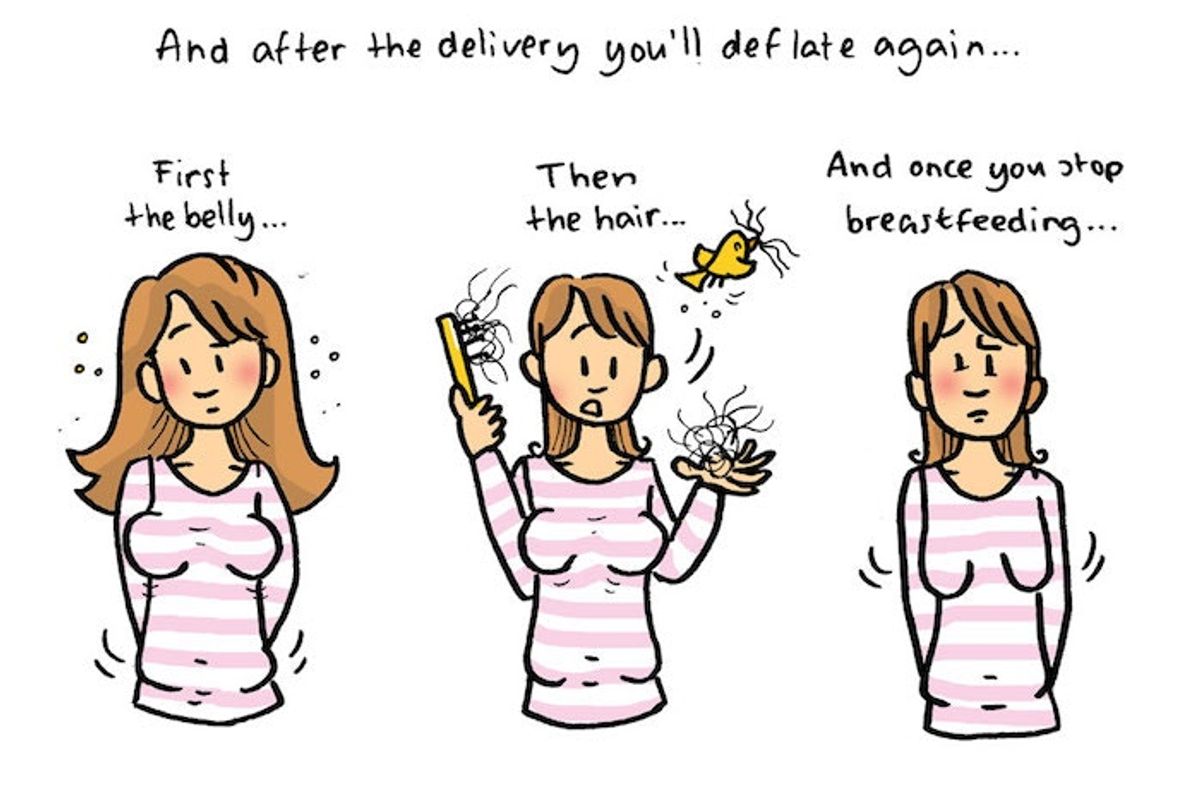It started with a simple, sincere question from a mother of an 11-year-old boy.
An anonymous mother posted a question to Quora, a website where people can ask questions and other people can answer them. This mother wrote :
How do I tell my wonderful 11 year old son, (in a way that won't tear him down), that the way he has started talking to me (disrespectfully) makes me not want to be around him (I've already told him the bad attitude is unacceptable)?
It's a familiar scenario for those of us who have raised kids into the teen years. Our sweet, snuggly little kids turn into moody middle schoolers seemingly overnight, and sometimes we're left reeling trying to figure out how to handle their sensitive-yet-insensitive selves.
Jo Eberhardt, a fantasy writer and mother of two from Australia, penned a reply that is so spot on that it keeps repeatedly popping up on social media. When you nail it, you nail it—and this mother nails it. "Ah, puberty," she wrote, "It changes our sweet, wonderful little boys into sweet, eye-rolling, angsty, accidentally disrespectful, but still wonderful young proto-men." Yup.
Eberhardt then described a discussion she had with her 11 1/2 -year-old son when he started going through this stage—a conversation they had in the car, which is usually the best place to have potentially uncomfortable discussions with kids.
She told her son that she'd messed up in the way she'd talked to him about puberty, then explained exactly what was happening in his brain.
“ I've spent all this time talking to you about the way puberty changes your body, " Eberhardt told her son, "and what to expect as you go through the changes, but I completely forgot to talk to you about what's going on in your brain right now. Puberty is the time when your brain grows and changes more than at any other time in your life — well, except for when you're a baby, perhaps. So I really let you down by not preparing you for that. I'm so sorry. "
Her son accepted her apology, then asked why is his brain was changing.
“That's the amazing thing," she told him. "Did you know that your brain grew and developed so quickly when you were little that by the time you were about five or six, your brain was almost as big and powerful as an adult's brain? "
"But here's the thing," she continued, "Even though your brain was super powerful, the instructions were for a child's brain. And all the information about building an adult's brain was a bit… let's say fuzzy. So your brain did the best it could, but it didn't really know what kind of person you were going to be back then, or what shape brain you were going to need."
“Now we come to puberty," she went on. "See, puberty is amazing. Not only is your body being transformed from a child's body to an adult's body, your brain has to be completely rewritten from a child's brain to an adult's brain."
“That sounds hard," her son responded.
“Yeah, it is," Eberhardt replied. “That's why I wish I'd warned you first. See, it takes a lot of energy to completely rewrite a brain. That's one of the reasons you get tired quicker at the moment — and that, of course, manifests in you being crankier and less patient than normal."
Eberhardt paused, then added, “That must be really frustrating for you."
Her son looked over at her, wiping his eyes. “It is," he responded. Sometimes I just feel really angry and I don't know why."
It's amazing what happens when we explain to kids the physiological reasons for what they're going through.
Eberhardt continued, “The other thing is that one of the first parts of your brain that gets super-sized to be like an adult is the amygdala. That's the part that controls your emotions and your survival instincts. You know how we've talked about fight/flight/freeze before, and how sometimes our brains think that being asked to speak in public is the same level of threat as being attacked by a sabre tooth tiger? "
Her son laughed. “Yes. So you have to tell your brain that there's no sabre tooth tiger to help you calm down."
“That's right," Eberhardt replied. "Well, that's what the amygdala looks after: sabre tooth tiger warnings and big emotions. So, the thing with puberty is that all of a sudden you've got an adult-sized amygdala hitting all your emotion buttons and your sabre-tooth tiger buttons. That must be really hard for you to manage."
Her son nodded and said, “Sometimes I don't know why I say the things I do. They just come out, and then I feel bad."
This is the moment where what a parent says can make or break a kid's spirit. But Eberhardt handled it with empathy and expertise.
“I know, Sweetheart," she said before explaining:
“See, the last part of your brain that gets rewritten is right at the front of your head. It's called the frontal cortex. And that's the part of your brain that's good at decision making and understanding consequences. So you've got this powerful adult amygdala hitting you with massive emotions, but you've still got a fuzzy child frontal cortex that can't make decisions or understand consequences as quickly as the amygdala wants you to. It pretty much sucks."
“So it's not my fault?" her son asked.
“No, it's puberty's fault your brain works the way it does, " Eberhardt answered. "But that doesn't mean it's not your responsibility to recognise what's going on and change your actions. It's not easy, but it's not impossible, either. Your feelings are your feelings, and they're always okay. But you get to choose your actions. You get to choose what you do with your feelings. And, when you make a mistake, you get to choose to apologise for that mistake and make amends."
Eberhardt said she then paused for dramatic effect. “That's how you prove that you're becoming an adult. "
It's also remarkable what happens when we empathize and communicate with our kids instead of simply chastising them.
Her son responded with a perfectly understandable and relatable, “Puberty sucks."
“Puberty absolutely sucks," Eberhardt responded. “I'm not in your head, but I can only imagine that it's a mess of confusion and chaos, and you don't know from one minute to the next how you feel about things."
Her son looked at her in surprise. “Yes! Exactly! "
“If it's confusing for you living inside there," Eberhardt continued, "imagine how confusing it is for me, when I only see your actions."
“That must be really confusing, " her son agreed.
She nodded. “Do you know what that means? "
“What?"
“It means sometimes I'm going to make mistakes. Sometimes I'm going to get upset at things you do because I don't understand what's going on in your head. Sometimes I'm going to forget that you're halfway to being a man, and accidentally treat you like a child. Sometimes I'm going to expect more from you than you're able to give. This is my first time parenting someone through puberty, and I'm going to make mistakes. So can I ask you a favour? "
“What is it?"
“Can you just keep telling me what's going on in your head? The more we talk, the easier it will be for both of us to get through this puberty thing unscathed. Yeah? "
“Yeah," her son said.
When we let our kids know that we're going through these various phases together, it's easier to work with them instead of against them.
Eberhardt said they "had a cuddle" before they got out of the car. She also said this conversation didn't magically make her son always speak respectfully or make her remember that he's not a little boy anymore. However, it did open up lines of communication and gave them a shared language to use.
For example, she wrote, "He knows what I mean when I say, 'Sweetheart, I'm not a sabre tooth tiger.'"
Ebehardt wrapped up her excellent answer by saying that she and her son are "muddling through this crazy puberty thing" together, and that she's "completely confident that he'll come out the other end a sweet, wonderful young man."
It's always so helpful to see examples of good parenting in action. Ms. Eberhardt's response is something all parents can tuck away for the appropriate time. It's also a great reminder that our tweens aren't trying to try us—they're just trying to get used to their new and improved brains.
This story originally appeared on 1.05.19








